|
by Brianna
Join Brianna and Ariel for another parenting book discussion. This month, we read Adulting: How to Become a Grown-Up in 535 Easy(ish) Steps. When you buy the book through our affiliate links, a small portion comes back to Busy Nest News at no cost to you. Thanks for your continued support! Adulting: How to Become a Grown-Up in 535 Easy(ish) Steps, by Kelly Williams BrownSummary
Do you ever feel as if everyone around you has it all figured out, while you’re still struggling with basic tasks? Do you wait for the less-than-friendly reminders from the utility companies before paying your bills? Or maybe you’re fiscally responsible, but you have no idea how often you should get an oil change, or you secretly don’t know what temperature to wash your clothes on, or how to cook a decent meal, or be respected at work, or, or, or. There are hundreds of skills whose mastery makes us feel like we’re competent adults; and if we’re bad at a few, we feel like terrified little kids masquerading as grown-ups.
Kelly Williams Brown’s Adulting: How to Become a Grown-Up in 535 Easy(ish) Steps (previously 468 steps) offers to teach twenty-somethings life lessons big and small. Everything from how to pick a good apartment (make sure the outlets are real and not stickers) to why it’s a mistake to date a friend’s ex. She systematically goes through eleven areas of life with both beginner and advanced tips to take you to the next level. Along the way she shares stories which may or may not be true, but do an excellent job of illustrating her lessons. Review:
Let me cut to the chase with this review: I believe that most people would benefit from receiving this book for their twentieth or twenty-first birthday. Going into this book (at thirty), I already knew nearly everything it had to teach (I thought I knew how to write thank you notes. I didn’t.). That said, about 80% of the book resonated with me as a tough lesson that I learned the hard way or witnessed a friend learn the hard way. If you want someone to get the most out of their twenties with the least amount of cringe-inducing memories, get them this book.
Why do I love Adulting so much? The best way I can explain it is that it’s a parenting book for yourself. Part cookbook, part memoir, part etiquette guide, part relationship book, part self-care manual, Adulting gently but doggedly opens a fresh grown-up’s eyes to the realities of being an adult. One of the first lessons is that you are not a special snowflake. The term snowflake is pretty loaded right now, but when the book was originally published in 2013, it was far less so. It is true that most young adults are used to receiving praise from parents, teachers, coaches, friends, and professors. Without feeling entitled, it’s easy to feel like you’re the protagonist in some epic tale that’s about to launch as you make your way alone in the world for the first time. Finding out that the rest of the world is ambivalent toward you can be a rude awakening. They neither support you nor are out to get you. With this key lesson in place, Brown moves on to the things that are in your control.
By the end of Adulting you’ll be equipped to keep a fairly tidy apartment, cook decent meals (maybe even throw a dinner party!), polish your appearance, get a job, manage your money (give daunting retirement programs cute new names!), deal with friends and neighbors with grace, decide if you’re *really* ready for a pet, have (and end) romantic relationships like an adult, deal with emergencies and figure out where your family belongs in your grown-up life. This book is clearly written from a woman’s perspective, and women will get the most out of it, but it would be really useful for young men, too. If you know a guy in his early twenties who really wants to impress a girl, get him this book. Can you imagine her reaction when she’s presented with a homemade pot roast? Ditto if he needs a job, is apartment hunting, you get the idea.
There were a few parts of this book with which I disagree. One is her take on money which, while competent in the conventional sense, doesn’t mesh with my goal of living debt-free. I would have liked to have seen Brown at least offer that as a viable option, rather than assume that everyone is chasing down the perfect credit score. I’m not nearly as pro-bleach as Brown, either. The other thing I didn’t agree with was the assumption that we all drank and hooked up throughout college. But even though I didn’t live that way, I was still intrigued to hear what steps those who did will need to take if they’re to pivot to healthier habits as adults. It’s probably still valuable information to some people, but she almost lost me for a little bit there. I should also mention that Kelly Williams Brown loves her swears. If you’re turned off by profanity, then this book is not for you. Those are really the only issues I had with the book, though. The snarky, silly, real-talk bluntness of the text was very fun to read, and the doodles are hilarious. The audiobook was great, but you are missing the doodles. Adulting contains lessons your parents should have taught you, but almost everyone has one or two blind spots, and some are so personal that they’re embarrassing to bring up with even the coolest mom or dad. I give Adulting four eggs. Discussion:
Brianna: Ariel, I chose this book because I’ve been wanting to read it ever since you did a few years ago. How was the re-read? Do you still enjoy Adulting, or find it valuable?
Ariel: I initially read Adulting when Brianna and I first met. I was 24. I had just married my husband. I had committed myself to him AND the Marine Corps in a very real way. I had moved to a new state. In short, I had just made some grown-up decisions but I was still an adolescent in a lot of ways. I loved Adulting. It gave me the information I needed (and some I didn’t know I needed) without making me feel judged. Plus it made me laugh at my ignorance! And believe it or not, I learned things. While I was rereading, I found little tidbits that I had actually put into practice. I am a more competent individual because I read this book. For example, I took her advice about heels. I don’t own many shoes, but I always make sure I have one expensive (or at least expensive looking) pair of black heels. You know the ones. The ones that make you feel like a goddess when you put them on. But I think the true value of Adulting is its message: if you don’t know these things, you are not a failure. We are all works in progress. Even those of us who call ourselves adults. I learned even more the second time around! How about you did you learn some valuable lessons?
Brianna: I definitely did learn some valuable lessons. I’m always open to simple recipes that make me look like I’ve really got my act together. Because of this book I was reminded that pot roast is a thing that exists, I made some, and it came out great. Also, as I mentioned above, I know that one should write thank you notes, send condolence cards, and carry out all manner of snail-mail correspondence, but I always felt very awkward and formulaic in my approach. Adulting really opened my eyes to the fun, heartfelt side of these notes. My thank yous in the future will be much more sincere and interesting. One more! How to address neighbors making loud sex noises will probably be useful down the road.
How do you feel about “Adulting” the verb? I’ve definitely used it myself, but it’s starting to feel a bit tired. My guess is that as one approaches 30, one will have fewer adult firsts, and paying your bills on time or changing your own tire isn’t something you should be shouting from the rooftops about anymore. What’s your take on this new verb? Ariel: Like most things in life, I think it depends on context. I loved how Brown used it in her book - to emphasize that being an adult does not happen overnight. To be an adult is to accept the fact that we don’t know everything. To be an adult is to commit ourselves to learning new things - to filling those knowledge gaps. And sometimes the knowledge you seek it something simple like how to make a proper omelet. But I do not like how people use it to celebrate making that same omelette. #adulting! If you are using the verb to satisfy your need for approval, perhaps it's time to do some soul searching. Learn what you need to learn and put it in practice. That is adulting. I have more mixed opinions about using the verb to highlight how much it sometimes sucks to actually BE an adult sometimes. Because it does! Bonding over shared misery is a legitimate way to build rapport. “My to-do list is the length of my torso! #adulting” When do you think it’s appropriate to use ‘adulting’ and when is it not?
Brianna: I tend to agree with your sentiments. It would be a bit heavy handed to ban its use everywhere. A seventeen year-old should absolutely post a picture of themselves holding their first license with the caption “first ever license #adulting!” But a twenty year-old getting gas shouldn’t be patting themselves on the back anymore for filling the tank. I also enjoy seeing it used for the miserable side of adulthood. “The store is out of my favorite toilet paper. Also I have a favorite toilet paper. #adulting.”
Last question, would you recommend this book and who would get the most out of it? Ariel: I would absolutely recommend this book! I honestly hesitate to put an age bracket on my recommendation though. I would like to think that individuals in their early twenties would benefit most from the book. Those individuals poking their heads out of adolescence only to discover that maybe - just maybe - they don’t have all the answers. But that would be discounting those precocious teens who have a jump-start on life. That wasn’t me either, so don’t feel bad. Or those individuals in their thirties who need a refresher and a good laugh. So are you old enough to face the humbling truth that there is always more to learn? Are you young enough to still be able to laugh at yourself? Then this book might just be for you.
About the updated edition: Ariel mentioned that she read Adulting years ago. Back then there were “468 Easy(ish) Steps.” In March 2018, a revised edition was released. It now has “535 Easy(ish) Steps.” Ariel has the original edition, and I have the revised edition. We compared notes and found new steps sprinkled throughout almost every chapter. The chapters with the most new steps were Fake it Til You Make It, Get a Job, Love, and Times Were Tough. We examined Times Were Tough and found a few more pointers regarding emergency preparations and readiness (small fireproof safes are cheap!), and a whole new section about dealing with your own grief (whether it be for your grandma or your cat, or in the author’s case, both). So the new edition basically factors in some more of Brown’s lived experiences in her thirties which could just as easily strike someone in their twenties.
But wait; there's more!
0 Comments
Leave a Reply. |
AuthorsAriel and Brianna are friends who met while working in a library. Now they collaborate to develop life-enhancing book club experiences. Archives
June 2023
Let's keep in touch!Categories
All
|
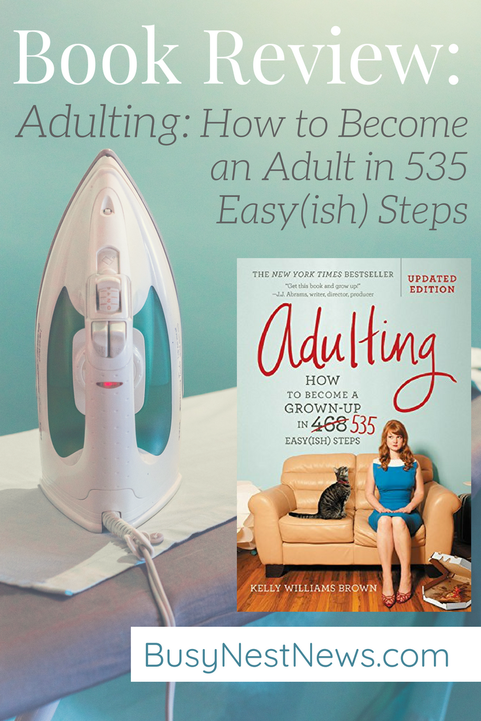
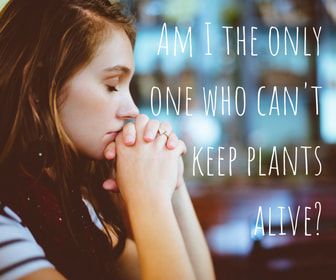
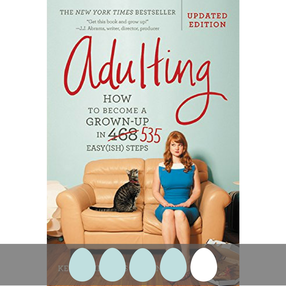
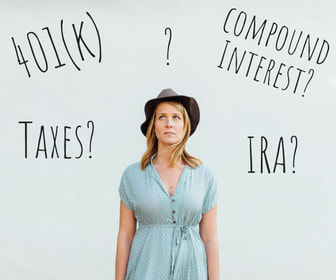
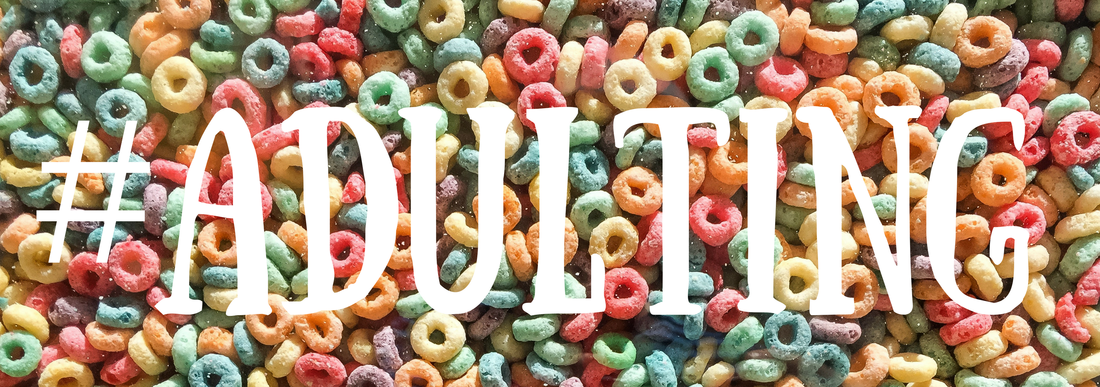








 RSS Feed
RSS Feed